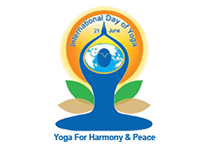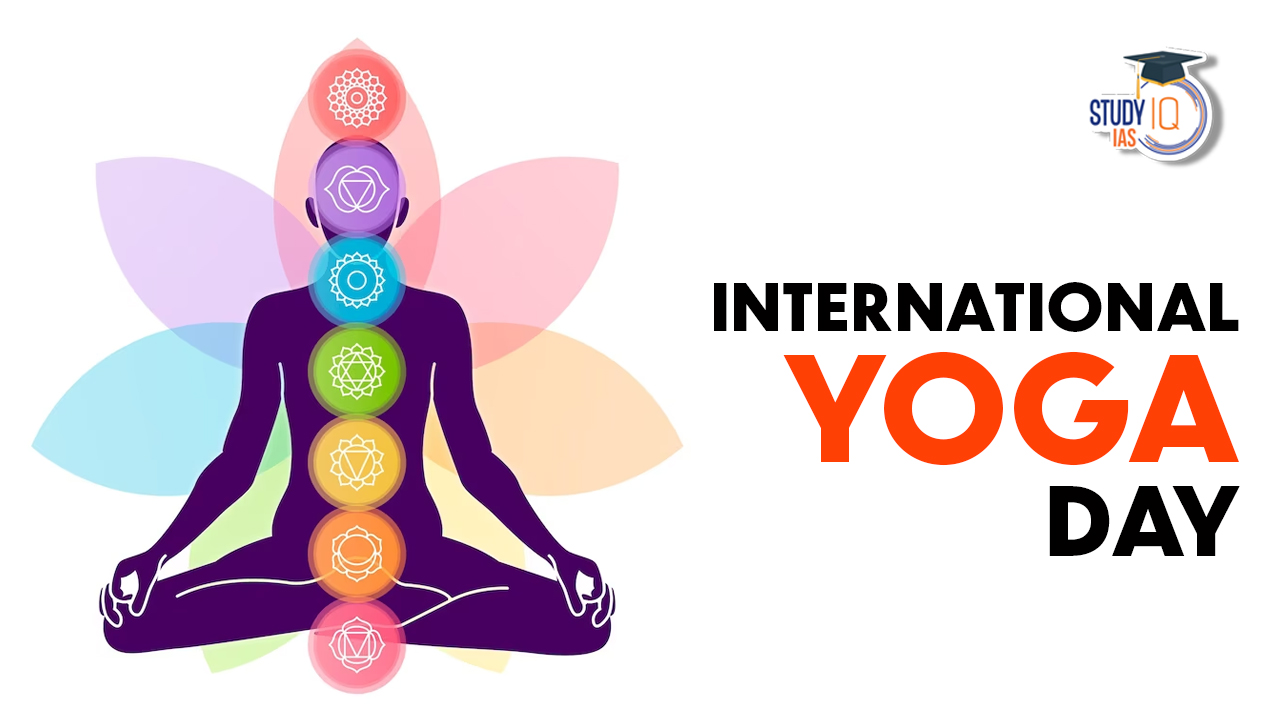Table of Contents
International Yoga Day is observed annually on June 21st, fostering global awareness of the ancient Indian practice of yoga and its multifaceted benefits for physical and mental well-being. This day serves as a reminder of yoga’s positive impact on individuals, promoting unity and harmony. Know all the details on International Yoga Day 2024 in this article.
World Yoga Day 2024
International Yoga Day 2024, also known as Yoga Mahotsav 2024, will be celebrated on Friday, June 21. This year marks the 10th anniversary of this globally recognized event, which aims to promote yoga for health, spiritual growth, and global peace. The main event will be held under the leadership of Prime Minister Narendra Modi at the Sher-i-Kashmir International Conference Centre (SKICC) in Srinagar.
| International Yoga Day 2024 Overview | |
| Category | Details |
| Date | June 21st, 2024 |
| Day | Friday |
| Theme | Yoga for Self and Society |
| Purpose | Raise awareness about yoga’s benefits in improving physical and mental health |
| History | Proposed by PM Narendra Modi in 2014, adopted by the UN General Assembly by resolution 69/131. |
| Yoga Mahotsav 2024 | Grand event to commemorate 100 Days Countdown to IDY-2024 |
| Digital Initiatives | Ayush Yoga Portal, MDNIY website, Namaste Yoga & Y-Break App |
| Activities | Mass yoga sessions, workshops, seminars, and cultural performances |
| International Yoga Day 2024 Location | Sher-i-Kashmir International Conference Centre, Srinagar, Kashmir |
| Global Reach | Celebrated in over 190 countries |
International Yoga Day 2024 Key Highlights
- Main Event in Srinagar: The central celebration will take place at the Sher-i-Kashmir International Conference Centre in Srinagar, led by Prime Minister Narendra Modi. This grand event will feature mass yoga demonstrations, workshops, and cultural performances.
- Digital Initiatives: For those unable to attend in person, digital platforms such as the Ayush Yoga Portal, MDNIY website, Namaste Yoga, and the Y-Break App will offer live-streamed sessions and webinars.
International Yoga Day History
The ancient art of yoga has a connection to the history of Yoga Day. It is a type of exercise and a meditative act that promotes physical, mental, emotional, and spiritual health. Since 3000 BC, yoga has been practised in India, and it plays an important part in old literature like the Rigveda and the Upanishads.
The earliest types of yoga combine physical activity, spirituality, meditation, and fitness. Jainism, Buddhism, and Hinduism all make reference to it. Yoga was characterized as a way of life in the Patanjali Yoga Sutra of the fourth century BCE. Three varieties of yoga are described in the Mahabharata text:
- Action (karma)
- Dedication (bhakti)
- Knowledge (Jnana)
Together, these three categories bind the body, mind, and soul. Even though yoga has been practised for a very long time in India, the country just recognized International Yoga Day in 2015. The Sanskrit term “yoga” has the literal meaning “to connect” or “to unite.” It represents how the body and consciousness are related.
International Yoga Day was initially proposed by Prime Minister Narendra Modi on September 27, 2014, during his speech to the United Nations General Assembly. At the time, Asoke Kumar Mukerji, the Indian Ambassador, had sponsored a resolution declaring June 21 as International Yoga Day.
The Summer Solstice, when there is the greatest sunlight throughout the year, falls on June 21, which is why that date was selected. The most nations ever to support a UN resolution, 177 joined together to establish June 21 as International Yoga Day. On June 21, 2015, in New Delhi, nearly 36,000 people participated in the first International Yoga Day, which is now celebrated all over the world. Among them were Prime Minister Modi and numerous other prominent political figures from around the globe.
International Yoga Day 2024 Theme
The theme for International Yoga Day 2024 is “Yoga for Self and Society.” This theme emphasizes the dual role of yoga in fostering individual and societal well-being, highlighting its transformative impact on physical, mental, emotional, and social health. It promotes the idea that yoga not only enhances personal health but also contributes to societal harmony and peace. This year’s theme underlines the transformative impact of yoga on both personal and community levels. It promotes:
- Individual Well-being: Encouraging people to adopt yoga for physical health, mental clarity, and emotional balance.
- Societal Harmony: Highlighting yoga’s role in fostering social connections, understanding, and collective well-being.
International Yoga Day Logo 2024

International Yoga Day 2024 Celebration
The central celebration will take place at the Sher-i-Kashmir International Conference Centre in Srinagar, led by Prime Minister Narendra Modi. This event will feature mass yoga sessions, workshops, and cultural performances, showcasing the unity and diversity of participants from across the globe.
Global Participation
Countries worldwide will host various events to mark International Yoga Day 2024. These will include:
- Mass Yoga Sessions: Public yoga sessions in parks, community centers, and schools.
- Workshops and Seminars: Educational sessions focusing on the benefits of yoga for physical and mental health.
- Cultural Performances: Events highlighting the cultural heritage of yoga, including music and dance performances.
- Digital Initiatives: Online yoga classes and webinars to reach a broader audience. Notable platforms include the Ayush Yoga Portal, MDNIY website, Namaste Yoga, and the Y-Break App.
International Day of Yoga Significance
- Global Awareness: Promotes worldwide understanding of yoga’s benefits for physical, mental, and spiritual health.
- Health Benefits: Enhances flexibility, strength, cardiovascular health, and mental well-being.
- Unity and Peace: Fosters global harmony by bringing together diverse cultures and backgrounds.
- Inclusivity: Highlights yoga’s accessibility for all ages, abilities, and fitness levels.
- Cultural Heritage: Honors the ancient Indian tradition and its enduring wisdom.
- Healthy Lifestyle Promotion: Encourages balanced living and holistic well-being.
International Day of Yoga UPSC
International Yoga Day 2024 celebrates a decade of promoting yoga’s global impact. With the theme “Yoga for Self and Society,” this year aims to inspire individuals and communities worldwide to embrace yoga for a healthier, more harmonious life. Join the celebration on June 21st and be part of a global movement towards well-being and unity.


 International Days List of 2025, Importa...
International Days List of 2025, Importa...
 Topological Materials: The Future of Qua...
Topological Materials: The Future of Qua...
 China’s Deep Sea Station in South Chin...
China’s Deep Sea Station in South Chin...





















